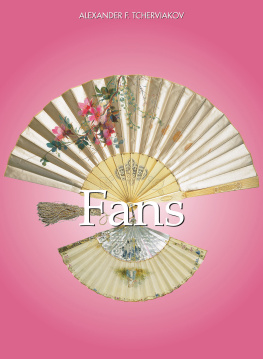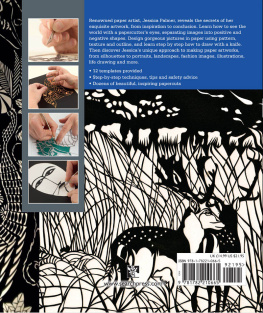Alexander F. Tcherviakov
FANS

2014, Confidential Concepts, Worldwide, USA
2014, Parkstone Press USA, New York
Image-Bar www.image-bar.com
All rights reserved. No part of this may be reproduced or adapted without the permission of the copyright holder, throughout the world.
Unless otherwise specified, copyright on the works reproduced lies with the respective photographers. Despite intensive research, it has not always been possible to establish copyright ownership. Where this is the case, we would appreciate notification.
ISBN: 978-1-78160-820-3
Contents
LIST OF ILLUSTRATIONS
A
B
C
D
E
G
L
M
P
R
S
T
U
V
W
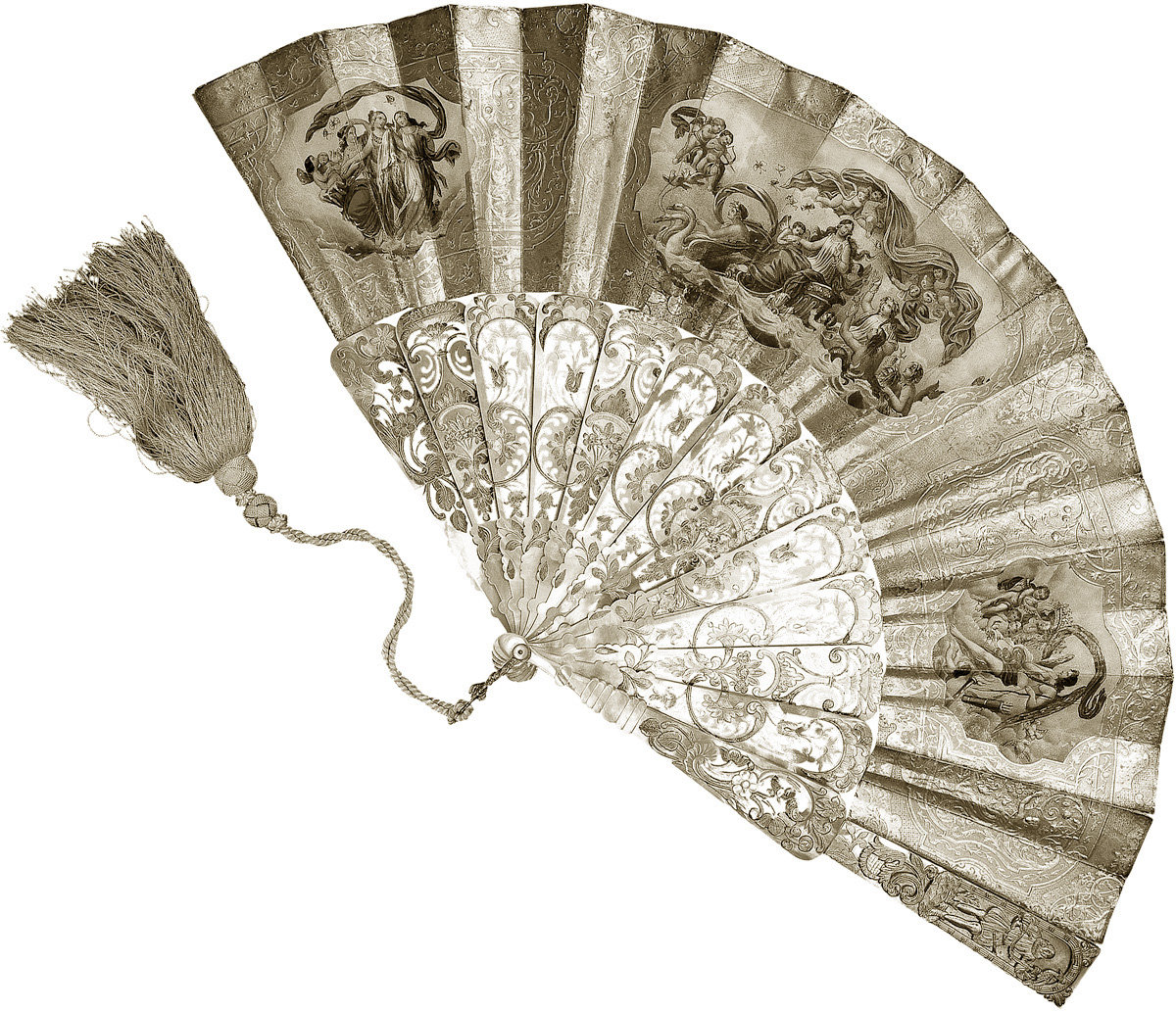
My body is but composed of long bones,
And I had all the time but skin on the bones,
I shine in company, and without any rest,
In the height of the summer, I am at all the parties.
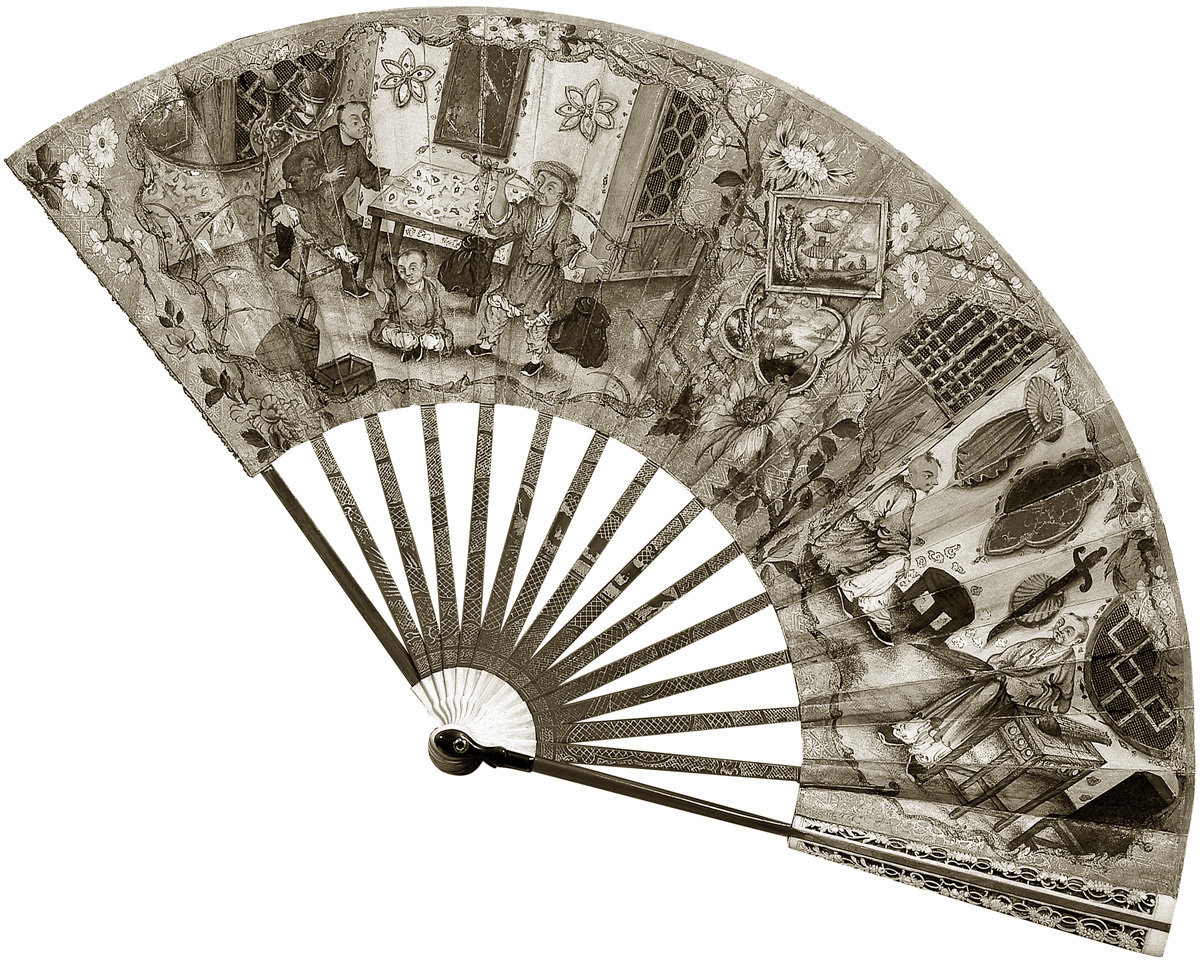
The Language of the Fan in the Eighteenth Century
To yawn behind ones fan: Go away, you bore me.
To lift the fan towards the right shoulder: I hate you.
To lower the closed fan towards the floor: I scorn you, I despise you.
To lightly touch the closed fan to ones right eye: When shall I see you?
To signal towards oneself with the fan closed: I always want to be with you.
To threaten with the fan closed: Do not be too bold, audacious.
To raise the fan with the right hand: Are you faithful to me?
To hide the eyes behind ones fan: I love you.
To offer a fan: You please me very much.
To conceal ones left ear with the closed fan: Do not disclose our secret.
To hold the fan over ones heart: I am yours for life.
To slowly close ones fan: I agree completely, I accept all that you say.
V. Pokrovski: Elegance in the Satirical Literature of the Eighteenth Century, p.43 Moscow, 1903.
The Language of the Fan in the Nineteenth Century
To completely open ones fan: I am thinking it over.
To place ones hand over the heart while holding the fan open in front of the eyes: I love you.
To indicate the floor near oneself with the fan: Come close to me.
To press the open fan with both hands against ones breast while slowly lifting the eyes: I humbly request forgiveness.
To lightly touch ones mouth repeatedly with the closed fan: Could I speak with you in private?
To completely open ones fan and wave it in the direction of ones interlocutor: I would hope to always be with you.
To look at ones closed fan: I think of you all the time.
To hold lightly with the left hand the closed fan over ones heart: Are you faithful to me?
The number of unopened blades indicates the time of a rendezvous: At the agreed hour.
To turn the inside face of the fan towards ones interlocutor: I shall not be able to come.
To move the end of the fan on the palm of ones hand, as if writing a letter: I will let you know by mail.
To wave away ones interlocutor with the closed fan: I do not like you.
To direct the open fan towards the floor: I despise you.
To open and close the fan repeatedly: You are too bold, audacious.
To angrily close the fan and turn it feverishly in ones hand: I am angry with you.
To press ones chin against the closed fan: I am sulking.
To write with the finger on the outside of the fan: Let me know by mail.
To look at ones open fan while rocking the head from side to side: You do not want to know me at all.
To turn with the right hand the end of the closed fan held in the left hand: You are being deceived.
To hold the two ends of the closed fan between the palms: I require an answer.
To indicate a seat with the fan closed: Sit next to me.
To indicate a seat with the fan open: Thats enough! You are boring me.
To point several times to ones forehead with the fan closed: Are you mad?
To press ones chin on the open fan: Stop your repugnant pleasantries.
To press the closed fan against ones right shoulder: I detest you.
To repeatedly drop the closed fan half open into the left hand: Not another word.
To flutter the open fan towards oneself: Dance with me.
To cover the palm of the left hand with the open fan held in the right hand: Keep it secret.
To give the closed fan to ones interlocutor: You please me very much.
To place the open fan against the right cheek: Yes.
To place the open fan against the left cheek: No.
To place the closed fan against the right ear: Im listening to you.
To hold the closed fan to the right temple: Stop being jealous.
To gracefully open and close ones fan: Your desires shall be fulfilled.
To lay the closed fan in the fold of the left hand: I do not understand you.
To gracefully hold out the open fan to ones interlocutor: Welcome.
To impatiently pass the closed fan from one hand to the other: I am very worried.
While holding the open fan with the right hand to make it turn with the left hand: My parents do not wish it.
To tap with the closed fan between the fingers of the left hand: We must interrupt our conversation.
To press the closed fan to ones heart while holding it with both hands: Spare me this unbearable company.
To hang the closed fan from the right hand: Adieu, good-bye.
V. Pokrovski: Elegance in the Satirical Literature of the Nineteenth Century, pp. 44-46 Moscow, 1903.
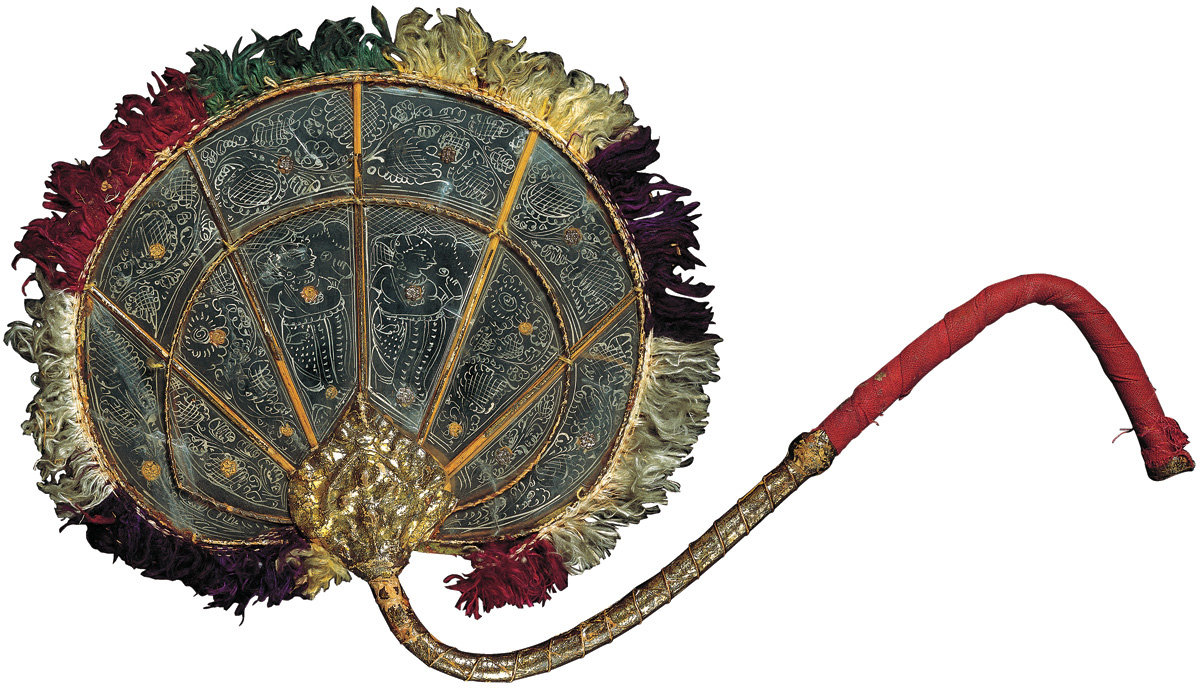
Untitled, Screen in mica representing two female figures
Holland (Colony of Indochina?), end of the 17th century-beginning of the 18th century. Wood, mica, paper-mach, cardboard, leather, silk, painting, sculpture, gilding, 36.3 x 33 cm. Museum Estate Ostankino, Moscow
The history of the fan has its roots deep in antiquity. In the beginning, this accessory served as protection from the sun, as refreshment, and to swat away annoying insects. The first prototypes that we know of today were probably gifts of nature: a branch, a large leaf, a tuft of feathers. Numerous legends and myths from diverse cultures and countries all claim to be the first witness to the distant origin of the fan.
However, we can probably consider a medieval European legend as the one describing the most distant epoch of the birth of the fan. This story recounts how Eve, bothered by the attentive gaze of Adam, once awakened, pulled down the branch of a tree and began to fan herself all the while contemplating with curiosity the marvels of Eden.
Our epoch has conserved some of these written accounts from antiquity, just as some images confirm the usage of fans among different cultures. For Chinese poets, the screen fan appeared in their country near the beginning of the second millennium BCE. As for the folded fan, it appeared in China during the tenth century BCE. It seems very likely that it came from Japan.

